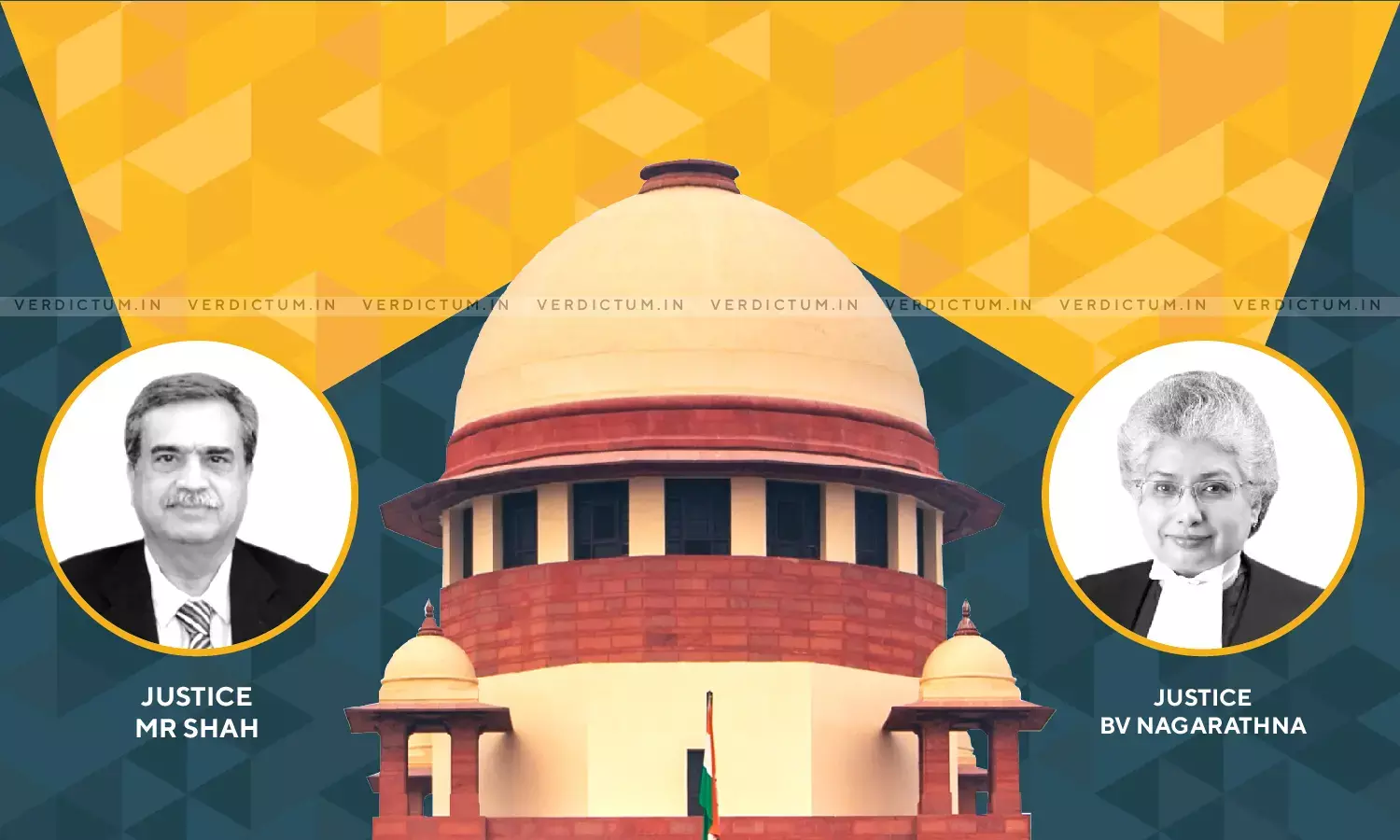ITAT Can Only Rectify Mistake Apparent From Record U/s. 254(2) Of Income Tax Act, Can't Recall Its Order: Supreme Court
A Bench of the Supreme Court consisting of Justice MR Shah and Justice BV Nagarathna has ruled that the Income Tax Appellate Tribunal (ITAT) can't recall its order under Section 254(2) of the Income Tax Act and the powers conferred under the Section are only to rectify/correct any mistake apparent from the record.
"It appears that the ITAT has re-heard the entire appeal on merits as if the ITAT was deciding the appeal against the order passed by the C.I.T. In exercise of powers under Section 254(2) of the Act, the Appellate Tribunal may amend any order passed by it under sub-section (1) of Section 254 of the Act with a view to rectifying any mistake apparent from the record only. Therefore, the powers under Section 254(2) of the Act are akin to Order XLVII Rule 1 CPC. While considering the application under Section 254(2) of the Act, the Appellate Tribunal is not required to re-visit its earlier order and to go into detail on merits. The powers under Section 254(2) of the Act are only to rectify/correct any mistake apparent from the record," the Bench observed.
In this case the Commissioner of Income Tax (IT-4), Mumbai 1 (Revenue) had challenged the orders passed by the Bombay High Court dismissing its writ petitions and confirming the order passed by the Income Tax Appellate Tribunal, Bench at Mumbai. The ITAT had recalled its order by exercising the powers under Section 254(2) of the Income Tax Act.
Additional Solicitor General of India Balbir Singh appeared on behalf of the Revenue and Advocate Anuj Berry represented the Resolution Professional of the Respondent-company.
After hearing the parties, the Bench opined that, the order passed by the ITAT recalling its earlier order is beyond the scope and ambit of the powers under Section 254(2) of the Act.
The Bench noted that if the erroneous order passed by the ITAT, the Assessee has remedy to file appeal before the High Court. The ITAT can't recall its order.
"In the present case, a detailed order was passed by the ITAT when it passed an order on 06.09.2013, by which the ITAT held in favour of the Revenue. Therefore, the said order could not have been recalled by the Appellate Tribunal in exercise of powers under Section 254(2) of the Act. If the Assessee was of the opinion that the order passed by the ITAT was erroneous, either on facts or in law, in that case, the only remedy available to the Assessee was to prefer the appeal before the High Court, which as such was already filed by the Assessee before the High Court, which the Assessee withdrew after the order passed by the ITAT dated 18.11.2016 recalling its earlier order dated 06.09.2013," the Bench noted.
"Therefore, as such, the order passed by the ITAT recalling its earlier order dated 06.09.2013 which has been passed in exercise of powers under Section 254(2) of the Act is beyond the scope and ambit of the powers of the Appellate Tribunal conferred under Section 254 (2) of the Act. Therefore, the order passed by the ITAT dated 18.11.2016 recalling its earlier order dated 06.09.2013 is unsustainable, which ought to have been set aside by the High Court," it added.
The Bench further clarified that, "Merely because the Revenue might have in detail gone into the merits of the case before the ITAT and merely because the parties might have filed detailed submissions, it does not confer jurisdiction upon the ITAT to pass the order de hors Section 254(2) of the Act. As observed hereinabove, the powers under Section 254(2) of the Act are only to correct and/or rectify the mistake apparent from the record and not beyond that."
The Bench set aside the orders passed by the High Court and allowed the appeals filed by Appellant, while reserving the right of the Assessee to challenge the original order of the Tribunal before the High Court.
Click Here to Read/Download the Judgment




